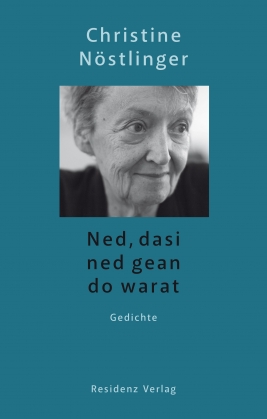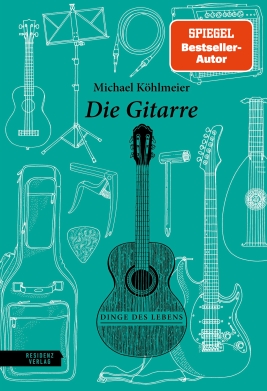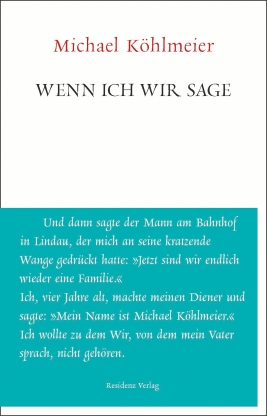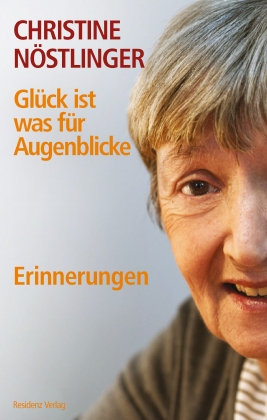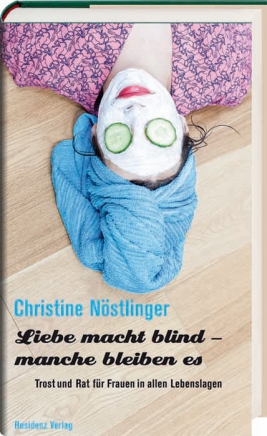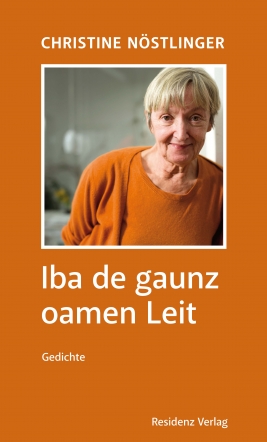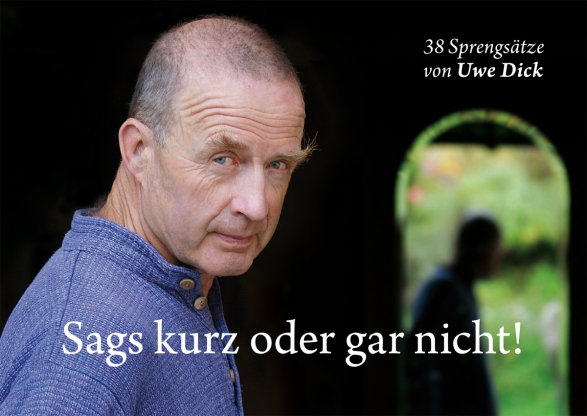Ein Jahr nach dem Tod der Kinderbuchgigantin sind nun 22 ihrer letzten Gedichte erschienen, traurige, lustige, sarkastische und bitterböse, fast durchwegs gereimt Dialektstücke, die zum Großteil auch für Nichtwiener verständlich sind, sofern sie zum Hilfsmittel der Rezitation greifen.
[Quelle: Daniela Strigl, FRANKFURTER ALLGEMEINE ZEITUNG]
Ohne sie fühlt sich alles entseelt an: Gut, dass jetzt noch ein posthumer Band mit Mundart-Gedichten von Christine Nöstlinger erscheint. (…) Lesen hasste ich, es verursachte mir Juckreiz, Seelenunruhe und Beinzappeligkeit. Aber Bücher von der Nöstlinger musste man einfach nur aufschlagen und dann ging alles von allein.
[Quelle: Clemens J. Setz, SÜDDEUTSCHE ZEITUNG]
Leicht und schwer, immer unbestechlich ehrlich – ein Schlupftrost für Schmerzgeplagte und all jene, denen es schwer fällt, das Leben so zu nehmen, wie es ist.
[Quelle: Ulrike Hug-Stüwe, BELLEVUE NZZ]
Die letzten 22 Gedichte: Man sollte sie laut vorlesen, auch sich selbst.
[Quelle: Peter Pisa, KURIER]
Dialektgedichte (…), und was für welche! Gegensätzliches elegant miteinander in Verbindung gebracht und durch Nöstlingers famose Dialektwortmühle gedreht.
[Quelle: Wolfgang Paterno, PROFIL]
Tiefsinnig, rabenschwarz und voll lakonisch-heiterer Zwischentöne, so lesen sich diese neuen Dialektgedichte.
[Quelle: Michaela Mottinger, MOTTINGERS-MEINUNG.AT]
Letzte Worte einer Weltliteratin: Skepsis, soziales Mitleid und das Wissen um die eigene Endlichkeit bestimmen Christine Nöstlingers späte Gedichte.
[Quelle: Heinz Sichrovsky, NEWS]
Wie damals vor über sechzig Jahren, als man lernte, die Dialekt-Gedichte von H.C. Artmann laut zu lesen, um sie verstehen zu können, genauso ist es jetzt bei Christine Nöstlinger: „Ned, dasi ned gean do warat“. (…) Auch darin beobachtet Nöstlinger wieder Menschen: ganz genau, mit liebevoller Ironie, es sind „Leit wia mia“, aber auch welche „unta mein niwo“. Sie schaut genau hin, nimmt sich kein Blatt vor den Mund, verwendet den Dialekt wie ein scharfes Messer zum tief Hineinschneiden und zum Bloßlegen. Aber dann wird sie wiederum ganz leise und streichelt: „One di bini do valuan.“ Tochter Barbara Waldschütz illustrierte liebevoll.
[Quelle: Konrad Holzer, FLANEURIN]
Christine Nöstlinger (1936–2018) war eine große Kinderbuch-Schriftstellerin, lustig, links und klug, nach dem unsterblichen Motto der »Sesamstraße«: »Wer nicht fragt, bleibt dumm.«
[Quelle: NEUES DEUTSCHLAND]
Christine Nöstlingers Gedichte sind zutiefst politische Gedichte, welche nicht nur den einzelnen, sondern auch die Gesellschaft genau auf ihrem Schmerzpunkt treffen und zeigen, wie vieles im Argen liegt. Christine Nöstlinger blickt ihren Mitmenschen dabei voll Respekt und Wärme auf Augenhöhe und niemals von oben herab in die Augen und Herzen. Heazlose Leid gibds e scho gnua. (…) Und es sind richtig gute Gedichte, also so ziemlich das Beste, was es derzeit an Dialektdichtung gibt. (…) Lesen Sie dieses Buch. Empfehlen Sie es weiter.
[Quelle: Astrid Nischkauer, FIXPOETRY]
Tiefsinnig, rabenschwarz und voll lakonisch-heiterer Zwischentöne, so lesen sich diese neuen Dialektgedichte. Sie erzählen von Sorgen und Hoffnungen, von Bösartigkeiten und von dem Umgang mit dem Alter. (…) Typisch Nöstlingers verquerer Humor, möchte man da sagen, dies Wechselspiel von Poesie und Sarkasmus, die hohe Kunst, ihren Leserinnen und Lesern beim Lachen ebendieses im Halse stecken zu lassen.
[Quelle: Michaela Mottinger, SORTIMENTER BRIEF]
Nöstlinger beschreibt einsame und alte Menschen, solche, die ein schwieriges Leben haben, über die man nicht gerne spricht und die nicht vor den Vorhang geholt werden. So, wie man sich das von ihr erwartet, in einer Sprache, die echt und doch wohlüberlegt zusammengefügt ist. Die Illustrationen von Barbara Waldschütz schaffen einen wunderbaren Rahmen.
[Quelle: UNSERE KINDER]
Ohne Zeigefinger und ohne dumme Wertung. Mit Hintersinn. Unaufgeregt, schön und stimmig.
[Quelle: Nils Jensen, BUCHKULTUR]
Sehr menschliche, menschenfreundliche Zeilen im Wiener Dialekt.
[Quelle: BADISCHE NEUESTE NACHRICHTEN]
Ein schmaler, schön gestalteter Band – eine Art Echo auf ihr umfangreiches Œuvre –, der uns anregen sollte, wieder einmal die liebgewonnenen alten „Klassiker“ der Nöstlinger zur Hand zu nehmen und darin zu schmökern.
[Quelle: Christoph Janacs, LITERATUR UND KRITIK]
Diese letzten Dialektgedichte von Christine Nöstlinger erzählen von Sorgen, Bösartigkeiten und vom Alter. Lakonisch, tiefgründig und voller schwarzem Humor bringt sie das Wesentliche immer auf den Punkt. (…) jedes Gedicht ist so außerordentlich, wie es Christine Nöstlinger zeitlebens war.
[Quelle: Rudolf Kraus, BÜCHERSCHAU]
Nöstlingers heitere Betrachtungen über Spinner und Außenseiter werden sogar „de gaunz braven leit“ sympathisch finden. Ein Vorwort von Michael Köhlmeier, das erhellende Nachwort von Gerald Votava und die Illustrationen von Babara Waldschütz runden den Band ab.
[Quelle: Simone Klein, BIBLIOTHEKSNACHRICHTEN]
Bitterböse, sarkastische, sozialkritische Texte, die sich mit Rechtsradikalismus, sozialen Ungerechtigkeiten und ähnlichen Themen beschäftigen, sind hier versammelt.
[Quelle: ECHO ROSENHEIM]
